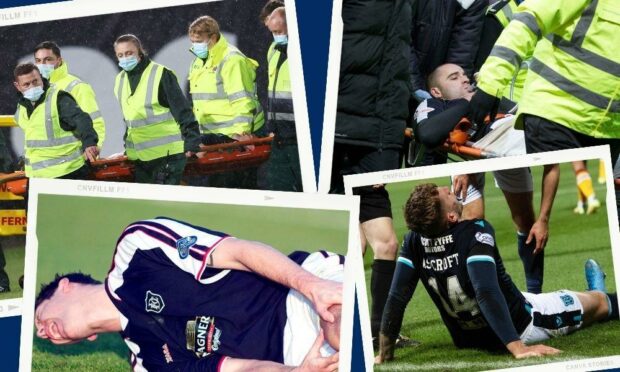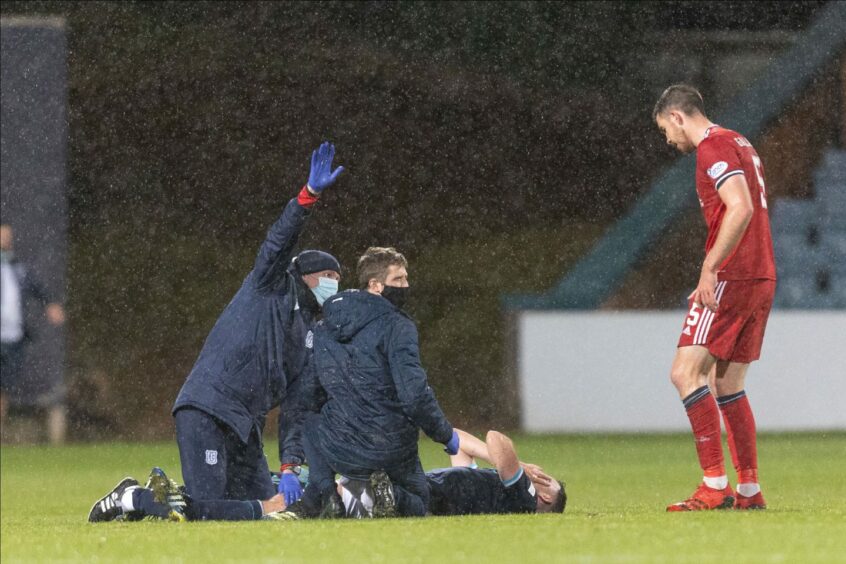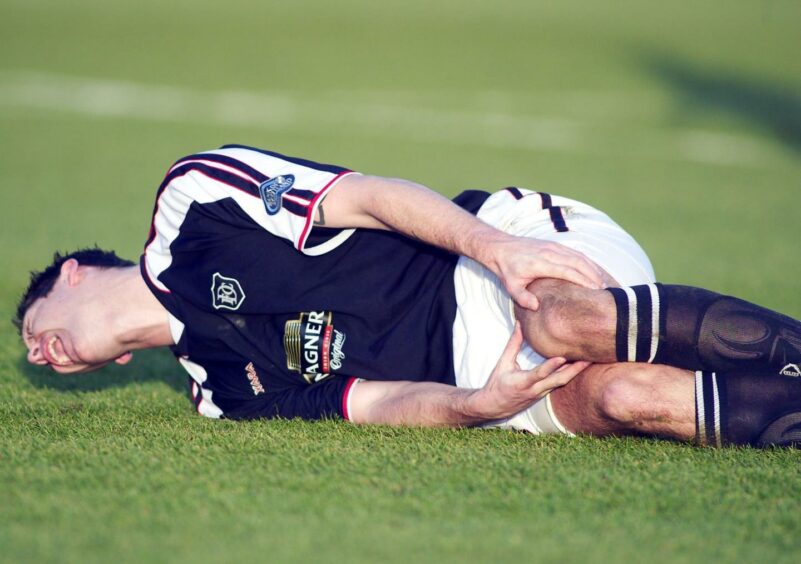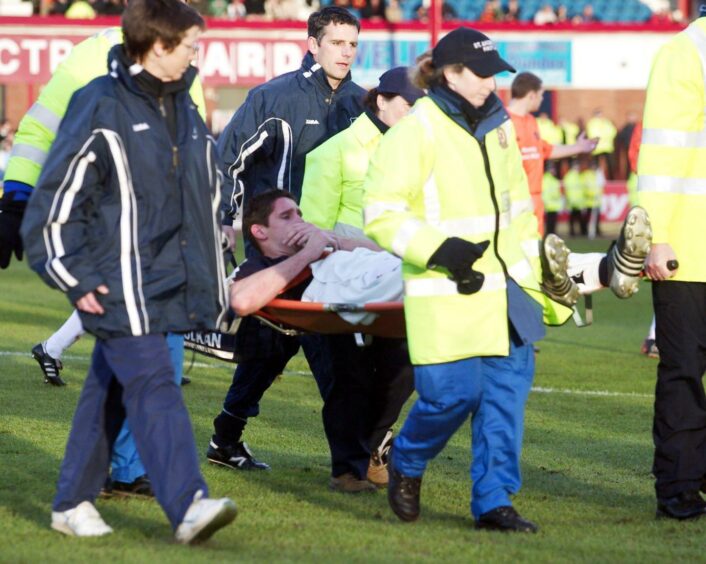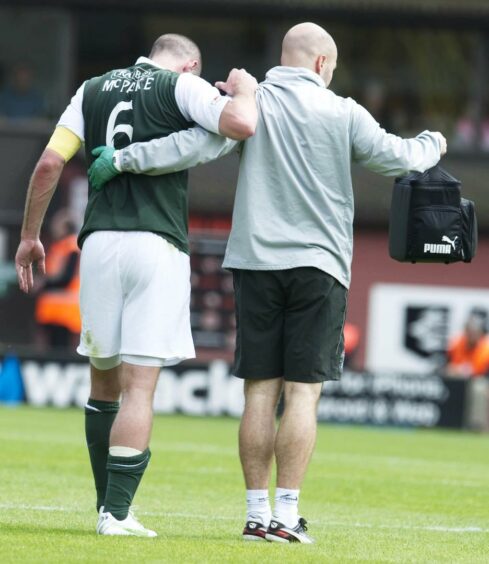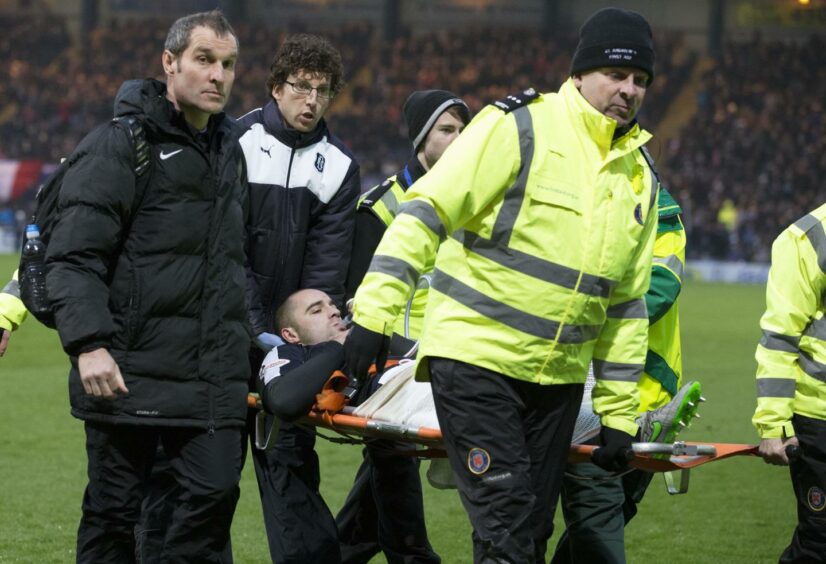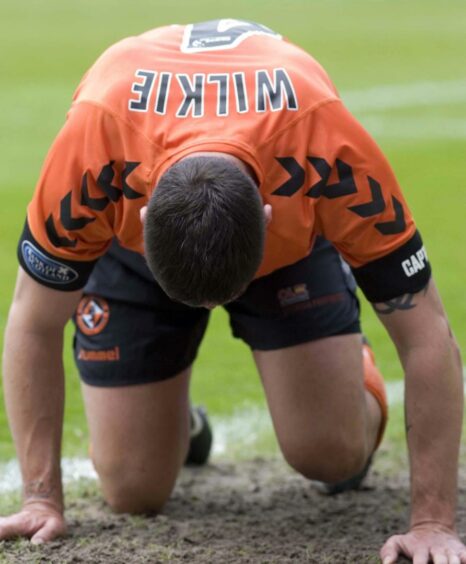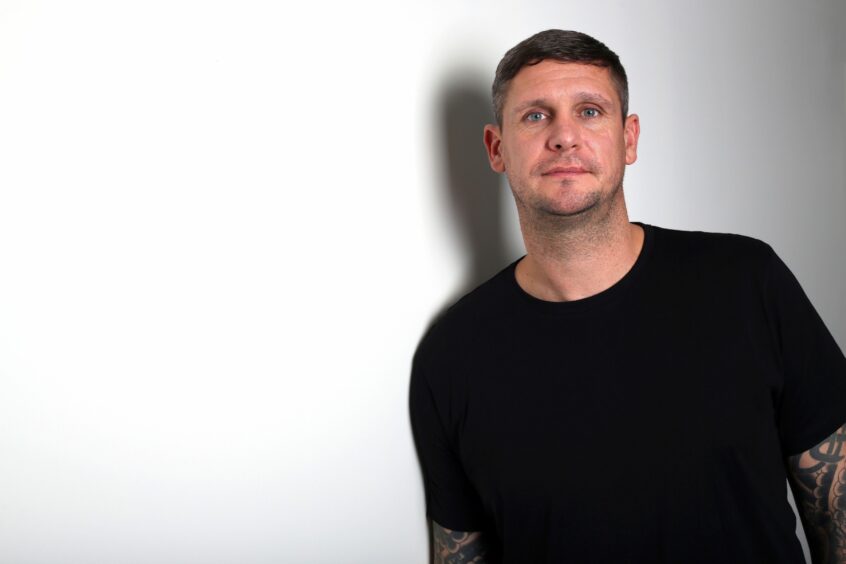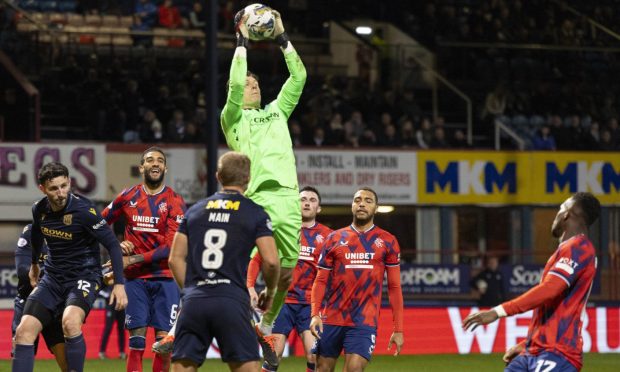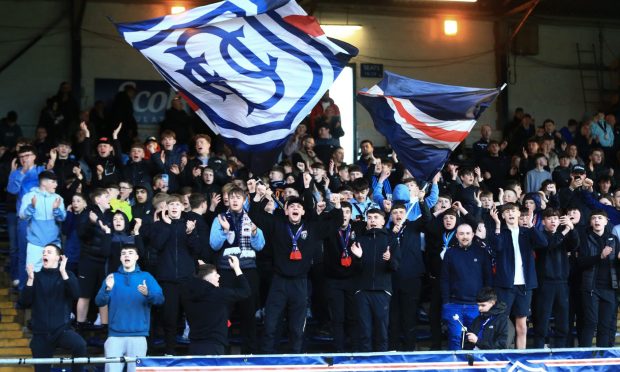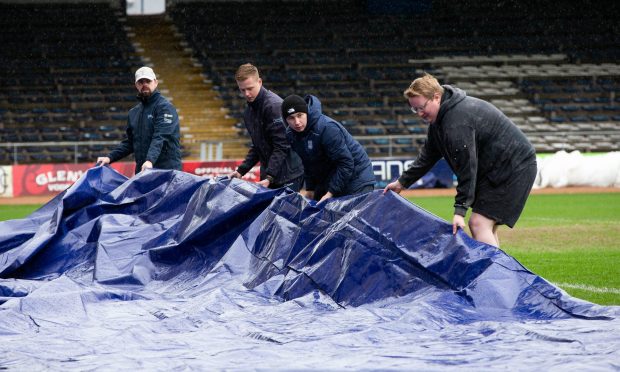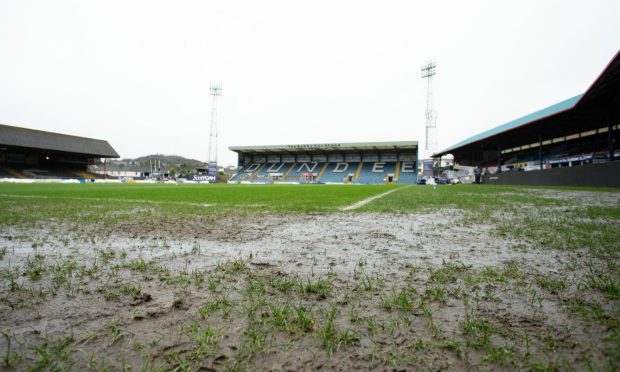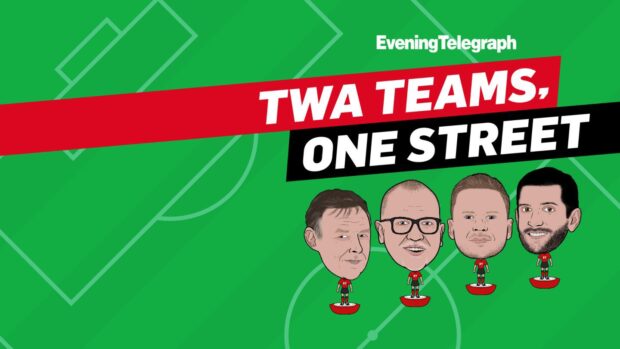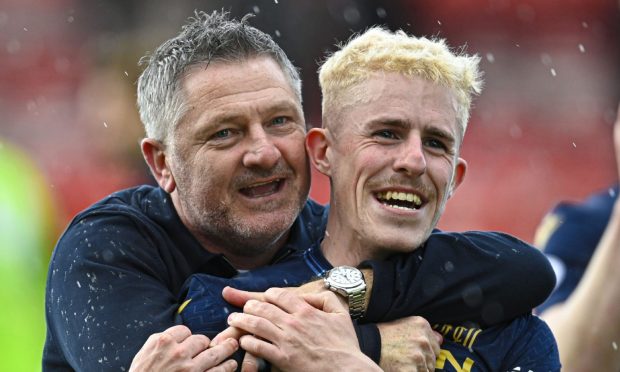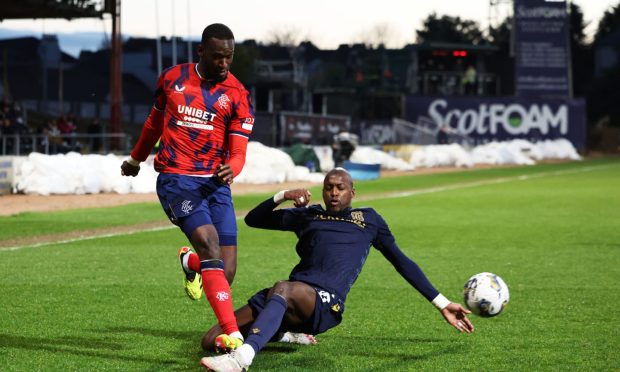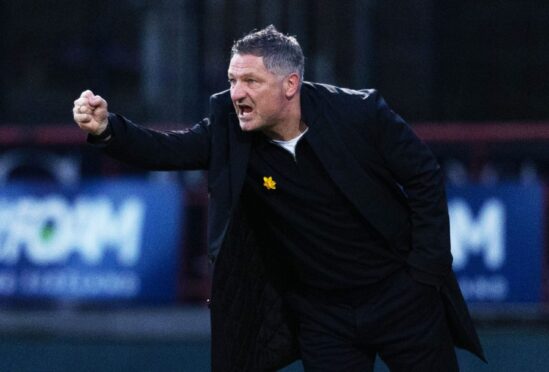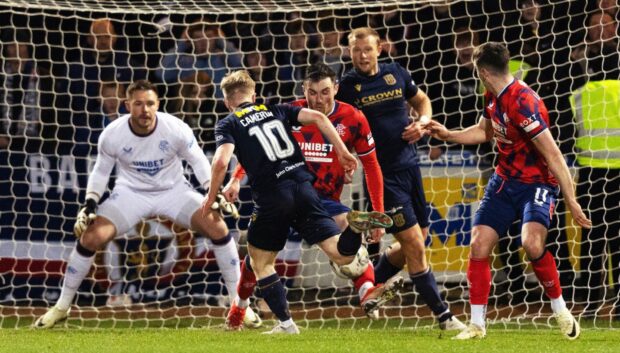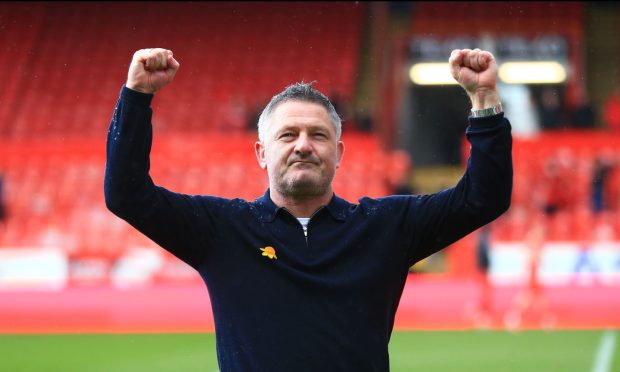Dealing with a long-term injury can be a lonely place for a footballer.
Often surgery, rehab and then day after day in the gym, a lot of time spent alone recovering.
Out of sight and out of mind for supporters – and sometimes managers – for months on end until fit and available once more.
With that comes a mental battle, one that only those who have been signed off from work they love for a considerable length of time can explain.
Right now, long-term injuries are scattered throughout the Dundee first-team squad.
Striker Cillian Sheridan is out for the season after rupturing his Achilles tendon, defender Lee Ashcroft is unlikely to return to the pitch until March following a nasty hamstring issue.
Midfielder Shaun Byrne escaped the worst of a knee injury but has been sidelined since October and is only now on the verge first-team training again.
One Dee who has known injury more than most is forward Alex Jakubiak with a catalogue of fitness problems restricting him to just seven starts in 18 months.
In a recent interview he described his time at Dens Park as the “hardest of his life”.
Returning to the squad after missing most of last season, Jakubiak told the Courier: “It’s been a tough season physically but mentally as well.
“I do feel I’ve come out of what you might say is a dark place but can now see the light at the end of the tunnel.”
‘When I was injured, I didn’t want to be at matches’
Every player is different but much of that “dark place” stems from the same place.
Former Scotland, Dundee and Dundee United defender Lee Wilkie’s career ended prematurely due to ongoing knee problems.
The first came while at Dens Park in a derby against United in 2004 and the 41-year-old admits it hit him hard.
“It’s really tough. Suddenly you go from playing every week to being told you can’t play for nine months,” said the Courier and Tele Sport columnist.
“It’s a huge test mentally.
“The physio side of it was quite easy, they say ‘do this, do that’ and give you a programme to follow.
“But it’s not quite so easy to tell yourself ‘do this, do that’.
“When I got injured, Dundee were in a relegation fight. And that was difficult because I wanted to help my team but I couldn’t.
“When injured I didn’t want to be at matches. I did go most of the time to support the team but I just didn’t want to be there.
“You can’t enjoy being there. When they started struggling and dropping down the table you feel helpless and that you aren’t helping.”
Some managers ‘aren’t a***d with you basically’
Dundee boss James McPake, meanwhile, feels his experiences of injury during his career have helped him since moving into management.
The former Hibs and Dark Blues skipper endured a lengthy back issue before his career ended with a serious knee injury after a tackle in a Dundee derby.
“I’ve been injured a lot,” the former central defender said.
“It is part of football but it is the human it affects. Some lonely hours in the gym and hard times where everyone is asking how you are and you just want to be out there helping your team.
“At times you feel like you are letting people down but you aren’t really.
“Now I look back on it, you are injured but you are working really hard to get back and help your team.
“I look at that side of it and I believe it is something that helps me as a manager.
“I’ve played for managers who, when you are injured, they do not care about you.
“Out of sight, out of mind and they don’t speak to you.
“They aren’t a***d with you basically.
“Sometimes you didn’t even get into the team meetings.”
Not as fearless
The mental test doesn’t end the moment a player is back out on the training field, however.
“It isn’t only the time out that is difficult mentally but even when you return,” Wilkie added.
“I know I wasn’t as fearless as before.
“Before the injury I’d be running about fine, jumping into tackles no problem. But, coming back from the injury, I was a bit hesitant.
“That took a while to get over.”
‘I can’t do it all again’
Wilkie would go on to suffer more knee problems and eventually left Dundee before signing a short-term deal at rivals Dundee United in 2006.
He would play two seasons at Tannadice but was forced to hang up his boots at the age of 29.
“I was just frustrated to start with when I got injured again,” he said.
“And you think ‘I can’t do it all again, I can’t do nine months rehab again’.
“On one hand it was easier because you know how it works, you’ve experienced it.
“But that still doesn’t help your frame of mind when you see the length of time you are going to be out stretch in front of you.”
No regrets
However, Wilkie remains sanguine about his playing days and prefers to remember the good times, which included 11 Scotland caps, one international goal as well as Scottish Cup and League Cup Final appearances.
“Football is a short career and I think I was injured for half of mine,” Wilkie adds.
“I am the type of person, though, that doesn’t like to have regrets. I’m delighted to have had the career I did have.
“Just to be a pro footballer was a dream and to play for my country as well as Dundee and Dundee United, I wouldn’t change any of it.”
Dundee’s ‘vital’ January window: What do the Dark Blues need next month?
